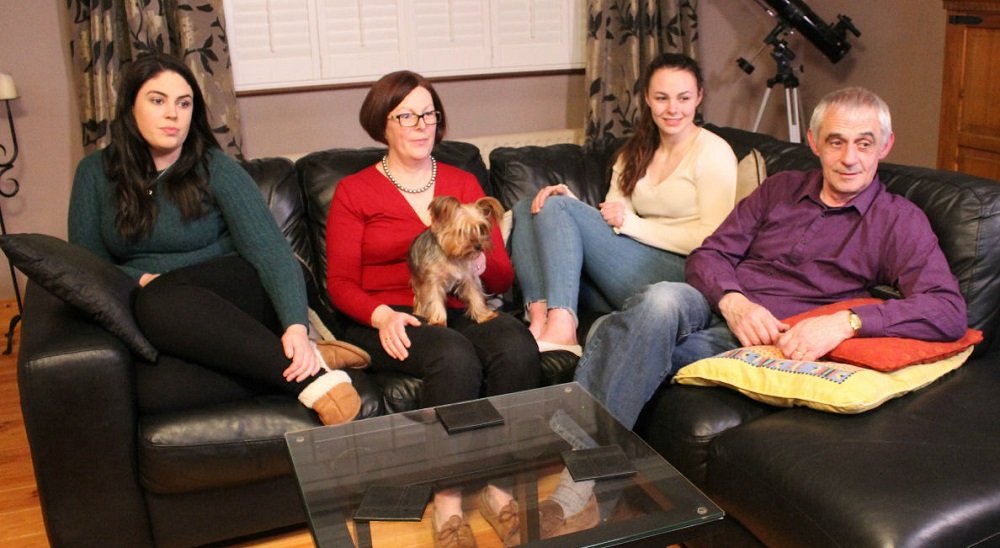By
DAN PENDER
As someone with an interest in research, the Channel 4/Virgin Media show Gogglebox always captures my curiosity.
Gogglebox puts the ‘real’ into ‘reality’ TV in that it provides a window into normal people’s perceptions and opinions of programmes and current affairs, ranging from Love Island to the evening news. Their every emotion is on display, from admiration and sympathy to anger and frustration. We see what they respond to, what they like and dislike, and how they interpret information. It’s all telling, valuable insight.
The programme has been a hit, winning awards, drawing strong viewership numbers, and securing spin-offs such as Celebrity Gogglebox and Christmas Day specials. Its creators were savvy enough to realise that in today’s world, where people are rarely passive, value opinion, and gravitate towards authenticity, a TV programme about people watching TV programmes was bound to work.
For business, organisational and political leaders, Gogglebox might not initially seem relatable. But substitute the Gogglebox couch for a boardroom, investor call, media interview, election, or digital feed, and the principle is precisely the same: the audience is making a judgement—on you, your brand, your promise, your credibility—based on what they see and hear.
Inside the Gogglebox
In my world, it can sometimes feel like I’m in a ‘live’ Gogglebox. Wearing my CEO hat, I’m the one on TV, while the people on the couch are my clients—current or prospective—and colleagues.
With my adviser hat on, my client is the one on TV seeking to influence their audience. In both scenarios, I gather insights, develop a strategy, prepare the creative, and communicate. Then, I stand back to gauge reaction.
Experience of doing this has taught me many things, but there is one particularly important lesson: if you just want nice questions from a supportive audience, you’re in trouble.
Think about those memorable presentations, meetings or media interviews you’ve had. You’ve nailed them, securing the desired response from your target audience. Usually, those moments featured at least one hard question. How you responded to that question was the make-or-break moment.
Your response resonated not just because it was informed by detailed preparation, serious subject knowledge, and effective delivery; you were able to demonstrate expertise and gain trust. It transpired that you were glad to be asked the hard questions.
The higher up the food chain you go, the harder the questions become. For C-level, government and organisational leaders, hard questions are an everyday reality. They’re usually responsible for spending someone else’s money—investors, shareholders, taxpayers, members—and thus must account for it. Their words and actions truly matter.
These leaders have a choice. They can:
-
Avoid hard questions by not communicating at all. There are times when this can work, but it’s hard to sustain. In my experience, these leaders only realise the value of addressing hard questions when it’s too late, and usually when they are in the process of being relieved of their leadership role.
Examples of this ‘too little, too late’ approach include former Volkswagen CEO Martin Winterkorn, who ultimately resigned and now faces criminal charges over the company’s handling of the diesel emissions scandal.
-
Don’t think about the hard questions or dismiss them. This is particularly prevalent among leaders from ‘groupthink’ environments, who are surrounded by people who only tell them what they want to hear. It usually ends badly, with an opportunity squandered and the audience left with an impression of arrogance and incompetence, as well as a shared sense of embarrassment.
This interview between Minister Brendan Griffin TD and broadcaster Ivan Yates is an example where an inability to deal with a hard question turned what should have been a positive into a negative.
-
Embrace hard questions. Rather than avoid them, these leaders anticipate hard questions and see them as an opportunity (albeit, at times, stoically). They think about their target audience and treat them with respect. It presents an influence moment—a chance to win over a decision-maker, get new customers, rebut an inaccuracy, explain a difficult decision, build support, boost team morale, and more.
One such example is a recent interview by AIB CEO Colin Hunt. Bankers get a tough time, sometimes fairly, but in this interview, Hunt embraced a series of tough questions, communicated his strategy, demonstrated action, and educated listeners.
So, the next time you communicate, be it under the lights of a broadcast studio or in a room full of colleagues, think Gogglebox. Think about your audience sitting on their ‘couch’. Respect them. They’re not fools. Your willingness and response to the hard questions will determine their reaction.
DAN PENDER
Founder and Managing Director of PR360, Dan’s career spans business, politics and professional representation. He has overseen the agency’s rapid growth, developing a premier client portfolio and a talented team of professionals.
